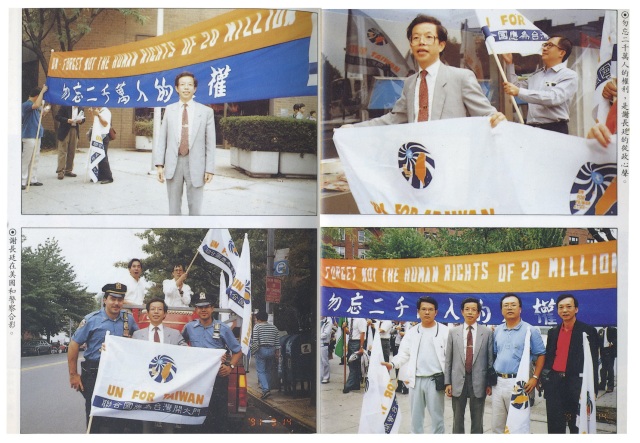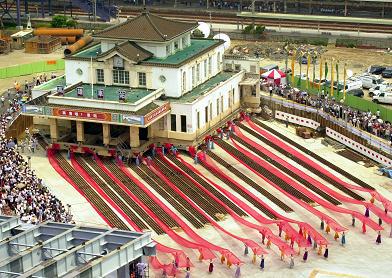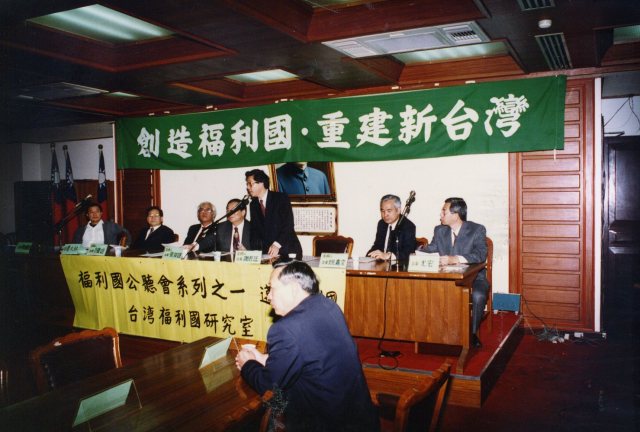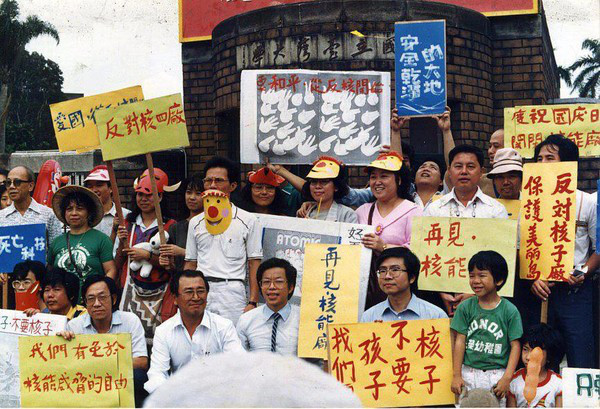- 關於新文化
- 政策主張
- The Four Priorities (1989)
The Four Priorities (1989)
The Four Priorities (1989)
Frank Hsieh proposed these four priorities in his 1989 parliamentary election campaign: Taiwan, the Culture, the Environment and the Vulnerable. After years of observation, they have been found to be important for maintaining a balance between Taiwan’s economic development, social justice and environmental protection.
1. Taiwan
Taiwan is a multi-ethnic society. Regardless of our origins (e.g. Hoklo, Hakka, Aboriginal, Mainlander or new immigrants from South East Asia), we all have emotional and cultural attachment to our ethnic or national origins. Putting Taiwan first does not mean excluding any ethnicity and we are happy to share our experience with China or other countries. However, when there is a clash between Taiwan’s political and national interest and that of another, we have to prioritise what’s in the best interest of Taiwan and its residents.

UN for Taiwan
2. The Culture
Taiwan is a multi-cultural society. Multiculturalism is our treasure. Therefore, when economic development or major constructions may damage cultural heritage, conservation has to be prioritised. For example, during his term as the Kaohsiung Mayor, Frank Hsieh decided to temporarily move the old train station to a side when the underground railway system and the new station were being built. Hsieh believed that apart from being a historical building from the Japanese time, the old station carried local residents’ memories. A nice story worth telling in this process was that the company that won the open bid to conserve and move the old station was the Japanese company that originally built the station.

3. The Vulnerable
Unlike large corporates, small- or medium-sized enterprises, farmers and workers cannot always keep up with economic transition and therefore do not benefit from the overall growth. If the government does not provide support, income inequality will increase. As such, the government should have a reasonable social welfare system to prevent inequality. It should allow vulnerable individuals to maintain a basic but acceptable standard of living and function with dignity and free the wealthy from the worry of overtaxation. After all, stability in the society is the best safeguard for wealth.

A public hearing held by the Welfare State Faction (led by Frank Hsieh)
4. The Environment
During the economic transition in the past, the Taiwanese ignored the problem of pollution. It damaged our environment and our health. We now need to stop pushing for development at the expense of the environment and put the environment first. For example, nuclear waste from nuclear power plants and its associated danger is the most pressing concern Taiwan needs to face because in a nuclear disaster, no one can escape, regardless of their wealth and status.

The first anti-nuclear protest in Taiwan